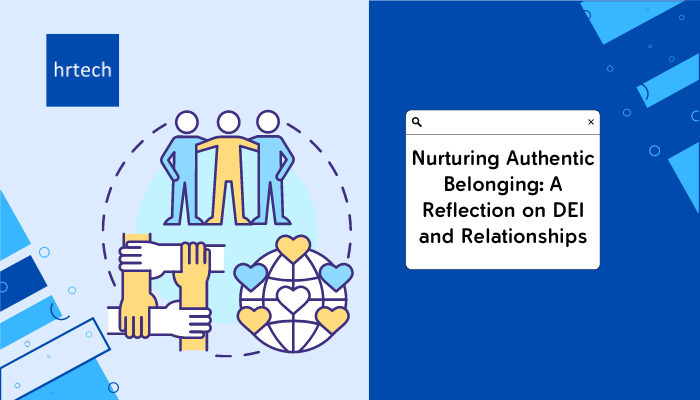I’ve always viewed DEI through the lens of relationships, emphasizing the need to examine and be intentional about the broader context of belonging. While a DEI mission, policies, and procedures are crucial foundations, many thoughtful leaders are asking, “How do I move my organization beyond ‘quotas, diversity hires, and feel-good numbers’ and truly harness the value of diversity?”
At the end of the day, diversity is not just a checkbox; it’s a resource, a value-add, a benefit, and good business. The ability for leaders and managers to tap into different perspectives is invaluable. Diversity of thought, rich with perspectives from all walks of life, can be a renewable resource of creativity and innovation, but only if you have been able to achieve belonging.
by R.P. Soriano
It’s not easy to “belong”
Belonging is the ultimate goal for DEI, and we can all agree that a culture of belonging is difficult to achieve. Most of the significant issues we face in the world stem from the challenge of creating belonging, be it in families, school cafeterias, communities, nations, or organizations.
Achieving belonging, at any level, is the result of how we function in relationships. It can be dysfunctional or functional. For example, having a “favorite” person on the team might create a sense of belonging for that individual, but it excludes everyone else. This sends the message that in order to “belong”, one has to be a favorite—look, act, believe, or be a certain way. If this is a blind spot for a leader or manager, and only the relationship with favored team member(s) is valued, there is the delusion of having created belonging.

Dysfunctional patterns in “normal” relationships can lead to disasters when the team is composed of people seen as “different”. If achieving a culture of belonging around DEI is challenging for your organization, the issue may run deeper. Unless leaders and managers understand how they function in relationships in general, they will not be able to create the belonging needed for the organization to thrive. These are tough issues to address.
True Belonging
In a healthy sense of belonging, everyone should feel accepted, needed, and wanted without the need to alter their true selves. Unfortunately, for many on both sides of this issue, achieving this might seem like an unattainable ideal. This challenge could explain the tendency to excessively focus on policies, departments, rules, and regulations, rather than on cultivating a culture that fosters a genuine sense of belonging for diverse groups, all without pressuring them to conform.
Establishing standards, defining roles, and structuring departments for DEI is undeniably complex. Faced with the tough decision between managing these functions and equipping leaders and managers with the skills to nurture relationships, the former may seem less contentious and perhaps simpler. Consequently, considerable effort is invested in enforcing the rule of law, yet the town remains entirely out of control.
Every organization struggles with difficult relationship dynamics, and they may have gone unaddressed. While they may seem like small cracks in the foundation and ignored, once you start opening the door to diversity, those cracks become canyons. The way we interact with others, manage conflict, define team membership, and collaborate for innovation are all functions of how we begin and nurture relationships. Without this skill, it’s challenging to expect members of the organization to do what’s necessary to create a sense of belonging, especially around diversity.
Nurturing Authentic Belonging
Achieving genuine belonging within a diverse framework is not only about policies and numbers; it’s about fostering authentic relationships. Leaders must address their own blind spots, challenge dysfunctional patterns, and actively cultivate an environment where every individual feels valued for their unique contributions. It’s a commitment to creating a culture where diversity is not just acknowledged but leveraged for its full potential – where everyone, regardless of background, is an integral part of a collective journey towards success. After all, the true measure of DEI success lies not just in the diversity statistics but in the depth of authentic connections and the flourishing sense of belonging that permeates the organizational fabric.
About the author:

R.P. Soriano, a devoted husband and father of two multi-ethnic/cultural daughters, takes immense pride in his dynamic and wonderful family.
As the co-founder, COO, and Director of Diversity, Equity, and Belonging at UnBoxed2Lead, he has a passion for implementing D&I programs, education, training, policies and governance to cultivate belonging that leverages diversity. He also specializes in helping leaders develop emotional maturity through mindfulness to navigate challenging relationships. A champion of nurturing relationships, he believes they serve as a powerful catalyst to achieve belonging.




